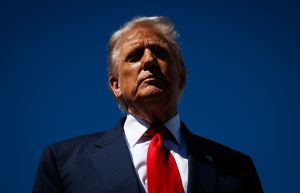Saturday saw 196 diplomats attempt to vote for a climate accord with the purpose of stopping emissions of man-made greenhouse gases in a bid to curb the effects of global warming on the planet. French Foreign Minister Laurent Fabius had announced to the delegates that the negotiators had reached to a conclusion overnight on what was called an "ambitious and balanced" plan to put the planet on a path toward greatly reducing fossil-fuel emissions, according to The Washington Post.
"Today we are close to the final outcome," said Fabius, who was greeted with applause from the audience of delegates at the conference. Fabius noted that the compromise aims to fulfil their objective of having a temperature increase well below 2 degrees Celsius and to limit its increase to 1.5 degrees Celsius, which should be enough to reduce the risks linked to climate change.
However, activists are not happy with the deal, citing it as being too weak to make a difference towards impacting the effects of global warming. Thousands of protesters assembled under the Eiffel Tower, holding hands and denouncing the accord. They are angry that the accord doesn't do much to force governments into abandoning their fossil fuels and moving on to more alternate means in order to reduce emissions.
Protesters also made a long red banner that stretched two kilometres from the Arc de Triomphe to the La Defense business district in Paris. They say that the "red-line" marks as the line the climate negotiators should not cross if they want to protect the people and save the earth, according to The Washington Times.
The key goals in the agreement made by the leaders was to ensure that there was transparency so that all the parties involved would keep their promises, and also to provide for provisions that explained how developed countries would receive financing in their efforts to adapt to climate change. The agreement also highlights a commitment by the developed countries to send $100 billion a year beginning in 2020 to the developing countries to support their cause towards battling climate change, TIME reported.
"We've always said that it was important that the $100 billion was anchored in the agreement," said Tosi Mpanu-Mpanu, from the Democratic Republic of Congo and the incoming leader of a coalition known as the Least Developed Countries. "We'll have to huddle and see if something can be worked out."
While some of the elements in the accord would be voluntary, others would be legally binding. The accord has ensured that all countries participating in the deal are wholly satisfied by the terms and conditions proposed, The New York Times reported.
© 2026 HNGN, All rights reserved. Do not reproduce without permission.








